At the MSA GB 2019 National Conference I was invited to share some memories of mine and Carol’s time with the MotorSchools Association of Great Britain (MSA GB) and these words reflect that presentation and an article in the May 2019 issue of Newslink.
As well as our own story, this meander down memory lane gives me a chance to consider the many changes that have taken place within the driver training and testing sector since I became an ADI in 1977 and started working for MSA GB in 1984.
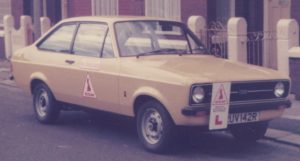
 So where did it start for Carol and me? After knowing each other for a couple of months we got engaged and then married six months later in July 1975; in 1976 our first daughter, Karen, was born.
So where did it start for Carol and me? After knowing each other for a couple of months we got engaged and then married six months later in July 1975; in 1976 our first daughter, Karen, was born.
In 1977 I took my first steps into the world of driver training, when I joined BSM and qualified as an ADI, later becoming manager at the BSM Branch in Wigan.
I left BSM and worked for a local school for about 12 months before we set up our own driving school – the Carol & John School of Motoring. Alongside managing the driving school, in 1981 Carol delivered our second daughter, Claire.
Things plodded along quite uneventfully for the next couple of years and like most ADIs, I focused on growing my business around east Manchester. By 1983 – with six years as an ADI – I had been involved in various types of driver and instructor training, but little had happened that would suggest my later career at the MSA.
However, the first steps on the road to becoming MSA GB general manager came when I was contacted by an ADI trainer called Jim Bennett who wanted to talk about a joint enterprise for a driving instructor training business.
As part of our exploratory discussions about working together we decided we should look at how each other taught instructors. To start with I was doing the role play and he the instructing.
“We are going to move off now so let the clutch out slowly”, said my ‘trainer’ from the passenger seat of my Talbot Horizon. He seemed a little surprised when I opened the driver’s door and invited the clutch to leave in an unhurried fashion.

Jim was not too impressed with my antics described above and even less impressed when, at the end of one road I stopped a little short of the junction; when he said “you’ll need to crawl forward so that you can see properly” I promptly jumped out of the car, got down on my hands and knees and crawled to the end of the street.
Well, it was what he asked me to do! Not the best of modern coaching techniques, I agree, but my role-play trainer told me to do whatever I was told – including following precisely the instruction “go straight ahead at a roundabout”. Good job they didn’t put flowers in the middle of them in those days!
But how did this connect me to the MSA GB? Well, Jim was an MSA GB member and at that time the association’s general secretary had come to the association from BSM, where I had trained. Jim went off on a course to learn how to role play and came back talking my language. As he had received help from the MSA GB I thought it would be worthwhile to join, too. I attended a few North West meetings and later that year was persuaded to join the MSA GB North West committee and to become the editor of what was then its fledgling regional magazine.
However, I joined at a bad time for the association. Rumours started to circulate that financial difficulties may force the MSA GB to close, or at least merge with a rival association.
To the best of my recollection that difficulty had been caused by the association allowing a publisher – not one that we would subsequently work with – to produce a magazine on behalf of the organisation, financed by the sale of advertising space. It seems the space was sold but the printer was never paid, and somehow the terms of the contract made the MSA GB liable for the debt.
It was money the association did not have. Action was taken against the publisher but the term banded about at the time was that he turned out to be a ‘man of straw’. Worrying times.
At the MSA GB Conference in 1984, held at Peebles, the rumours were that the MSA GB’s demise was imminent. Jim and I discussed this at one of our regular meetings in our ‘office’ – the café at Burtonwood Motorway Services Area on the M62, roughly halfway between our respective homes in Liverpool and Manchester.
We agreed that to allow the MSA GB to disappear less than a year before the association’s 50th anniversary would be very sad, plus we thought a golden anniversary would be an occasion worthy of a good party. So we came up with a plan to save the MSA GB.
I can’t remember all the details but in brief it involved realising the association’s assets by selling the office in Fulham, paying off the debts and using the money to generate more members by what we called ‘the snowball initiative’.
We believed that once we started to get members, they would get more members and like a snowball rolled through snow, the MSA GB membership would grow.
We were allowed to put our ideas to an MSA GB board meeting, but on arrival were surprised to find that the general secretary was absent. We learnt he had gone to clear his desk having decided to leave the MSA GB.
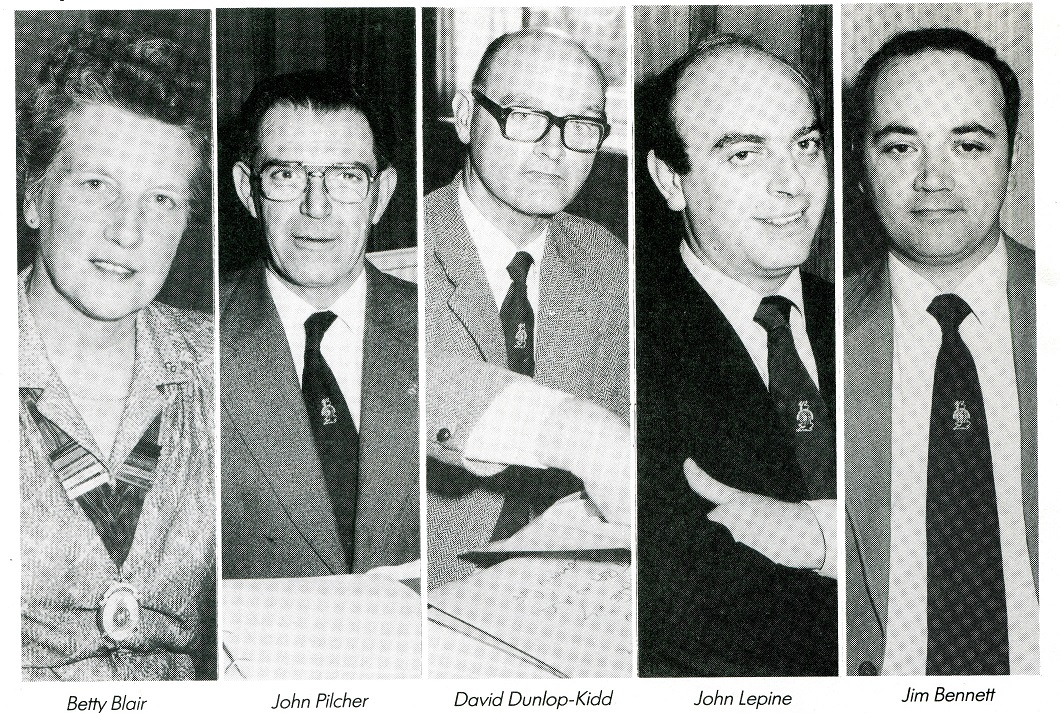 We presented our plan and were asked if we would be prepared to work for the MSA GB for one day a week and implement our revival plan. We agreed and my wife Carol also signed on to help with membership, administration, finance and all the other items that provide the glue that holds the association together. We were invited to become part of the management team alongside national chairman Betty Blair, deputy national chairman John Pilcher and company secretary, David Dunlop-Kidd.
We presented our plan and were asked if we would be prepared to work for the MSA GB for one day a week and implement our revival plan. We agreed and my wife Carol also signed on to help with membership, administration, finance and all the other items that provide the glue that holds the association together. We were invited to become part of the management team alongside national chairman Betty Blair, deputy national chairman John Pilcher and company secretary, David Dunlop-Kidd.
After selling the old premises, paying the capital gains tax and paying off the MSA GB overdraft we re-launched the association with a Golden Jubilee conference, which was held in Coventry in 1985.
From then on my duties – and those of Carol – intensified until I left behind my driving school and focused full time on the MSA GB, growing its membership, raising its profile within the Department of Transport and other government departments and making sure the DSA of its time knew it had a responsible association on its case if it wished to change anything in the driver training and testing sector. A couple of years later Jim departed to pursue other things and became a performance poet and combined that with teaching Creative Writing at the University of Liverpool.
We moved to new offices in Salford and purchased the association’s first computer – an Epson QX-10 with a CP/M operating system had the honour to be our first steps into IT. Bill Gates or Steve Jobs I am not but fortunately Carol proved more tech-savvy than I was, getting to grips with a technology that while it has its links with today’s systems, was still a million miles away from the equipment we all have at our fingertips today.

For example, the Epson did not have much memory, so the membership details of each region’s had to be held on separate seven-inch discs and then backed up to two other discs for safety’s sake. Before any transaction could take place, the correct disc had to be found and inserted into the floppy drive.
Someone please explain this last paragraph to younger readers…
It’s amazing to see how far the MSA GB’s tech has improved over the years. The back-up systems moved to larger and larger discs in terms of memory until they started to get smaller – but with more capacity – before ending up as small sticks, and then these were ditched altogether in favour of information being held in the ‘Cloud’.
Throughout all these changes Carol kept up-to-date with the tech, and with patience and attention to detail has ensured members’ records have been kept safe and secure, bills paid on time and the association’s administration has run like clockwork.
While she was doing that my eye was on a gathering storm of changes to sweep across the profession, all of which would change our sector in ways that would have seemed inconceivable when we started.
Let’s look at a few of them. In 1986 the Road Traffic (Driving Instruction) Act 1984 legislation came into force. Conditions included:
- that the new-style ADI certificate or the trainee licence shall be fixed to and immediately behind the front windscreen of the motor car on its nearside edge;
- Trainee Licences were limited to six months;
- AND applicants must have passed the ADI Theory Test and the ADI driving test before they could receive a licence. They could then teach people to drive while studying for the Part 3.
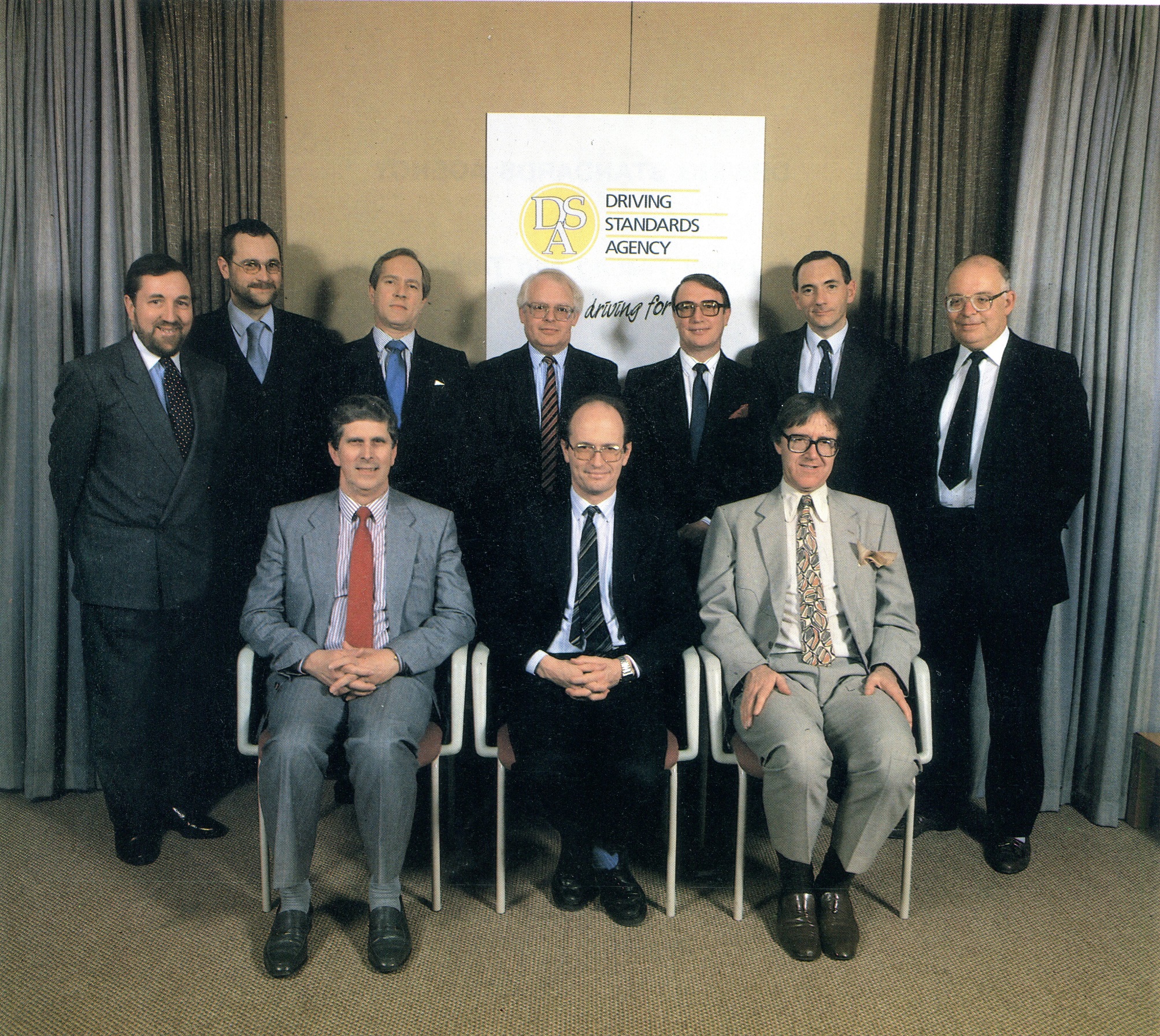
Perhaps the biggest single change came in 1990 when the control of driver testing and training was hived off from the Department of Transport (or was it for Transport… it’s easy to forget, as the name has been subtly changed so many times over the years) and the Driving Standards Agency was formed.
The first DSA chief driving examiner was Keith Cameron, a man who was to go on to be a great help to MSA GB over the years, as was its first chief executive, Chris Woodman.
Other people who had prominent roles at this time included Brian Austin, the ADI Registrar and a long-time friend of MSA GB and me, Brian Donaldson, deputy chief executive, and Paul Butler, the DSA’s head of policy.
They proved an effective team and were happy to listen to the MSA GB. The good thing was that as a new agency, its leadership was keen to make an impression and deliver positive changes to the ADI community.
The first came in the humble shape of the examiners’ marking sheet. It had long been government policy that, despite campaigns by organisations such as MSA GB, examiners would never give candidates a copy of this.
Reasons included the patronising concept that ‘ADIs would not be able to understand it’; and examiners would not discuss the test with pupils as it would be ‘too confrontational.’
However, the new DSA had other ideas and from May 1, 1990, examiners gave candidates a brief explanation of faults committed during the test, plus advice on areas for improvement.
The marking sheet followed soon afterwards. It was a major success for the MSA GB and its membership and helped pave the way to a much more collaborative relationship between the association and the agency that oversees the sector. There was also a big push on customer relations. After calls from MSA GB and others it was agreed that examiners would start to wear name badges to ‘personalise’ the experience of taking the L-test. The then Deputy Chief Driving Examiner, John Ayland, wrote to all the examining staff, explaining the new policy. He enclosed a form that examiners had to complete, stating which test centre they were based at, eg, it would say ‘Nottingham’ if that was their DTC, and there would be room for their name. How did they want their name to be written on their new badge? The examples were given as: Mr J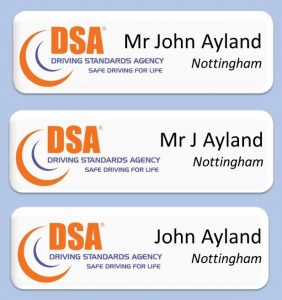 ohn Ayland; Mr J Ayland or John Ayland.
ohn Ayland; Mr J Ayland or John Ayland.
He got back dozens of forms all completed in the same way: ‘Test centre – Nottingham; name required – John Ayland.’ Who said examiners don’t have a sense of humour!
In 1992 ADITE was launched. Originally there were seven organisations involved but the Driving Instructors Association (DIA) dropped out and formed its own register. The Driving Instructors Scottish Council (DISC) ceased to exist for a while and the National Association of Approved Driving Instructors (NAADI) ceased to exist forever, while the RAC Register of Instructors (RACRI) also closed. That left the Approved Driving Instructors National Joint Council (ADINJC), British School of Motoring (BSM) and the MSA GB.
By now the DSA was getting into the swing of things. The early 90s saw the launch of Pass Plus, a ground-breaking programme in that ADIs alone could deliver it. Sadly, while its launch generated a wave of positive publicity, interest fizzled out and today, while still around, take-up among new drivers remains painfully poor.
Another major change at this time was the Code of Practice. MSA GB has had a Code of Practice and supplied this to its members with Terms of Business since the 1950s, but there was no nationally agreed standard. However, the DSA called the ADI associations together to agree an industrywide Code of Practice.
After several meetings an agreed format and wording was published, and the industry has been updating it from time to time ever since. One thing that should be emphasised about this: it is our code, not the DVSA’s; although the ADI Registrar does use it as a benchmark for ADI standards we, the industry, own the code. Alongside any code it is also important to have Terms of Business and MSA GB continues to publish a set of Terms of Business to help members promote both a professional image to their pupils as well as provide some protection for the ADI. If you are not using either or both I suggest you start now; it really does make life easier
In 1996 separate theory tests were introduced for the first time in the UK, ending the practice of a brief run through of road safety signs and the Highway Code at the end of the L-test. Sadly, no compulsory theory training came in at the same time, making it difficult for ADIs to translate this reform into a way of making more money. In 2000 this theory testing was transferred from paper to a touch screen, making it the first such test in Europe and putting the UK at the vanguard of their testing in the world. It’s a position we still hold to this day, with CGI HPT now added.
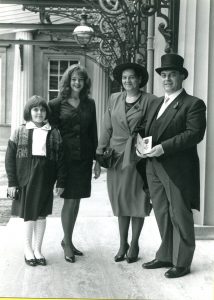
Personally, this period contained some prominent milestones. In 1991 I was awarded an MBE for services to driver training and road safety – in truth, for helping the DSA sort out ADITE that eventually became ORDIT – and with Carol and our lovely daughters set off to Buckingham Palace for what was a great day out to receive my award from Her Majesty the Queen.
The fact that the girls preferred the musical Miss Saigon that we went to see in the evening, to the somewhat boring – for them – ceremony was probably treasonable, but perhaps understandable.
I received many lovely letters of congratulations including one from Dr Chris Woodman, then CEO of DSA who wrote: ‘Dear John, Many congratulations on your well deserved honour. Few in the driver training industry carry as much weight as you.’ Charming! Seemed a bit personal, but I let it go.
Another example of being on the receiving end of a slightly barbed comment came a couple of years later in 1994 when I was invited to speak at One Great George Street in London, the large conference centre near Parliament, at a Department of Transport event about young drivers. I presented a short paper on “Apprentissage anticipé de la conduit”, the French apprentice driver scheme – back then regarded as quite a revolutionary idea and one that many within the driver training sector considered worth emulating to some degree in the UK.

As a speaker I was in the front row and directly behind me was one-time Minister of Transport Peter Bottomley MP (now Sir Peter). When I sat down after delivering my scintillating speech, he tapped me on the shoulder and said… “Well done John, that was surprisingly good…”
By this time we had reached 2000 and the internet age. It may have started earlier for others but the MSA GB’s first website was launched at that year’s national conference in Peterborough, appropriately entitled ‘The Millennium on the Meridien, as that fine Cambridgeshire town sits on the fabled line. We had contemplated holding the event in Greenwich, but it was too expensive!
In 2002, after much pushing, we finally persuaded DSA to accept credit card payments and then to introduce an online booking system. It has taken only a further 16 years to get the agency to accept online booking of Standards Checks!
This kind of innovation seems so simple nowadays but back then this victory was delivered after a hard-fought campaign. Another victory came in 2003 when a new independent Appeal Tribunal was introduced for ADIs unhappy with the Registrar’s decision to remove them from the register. Until then it was a case of ‘accept the Registrar’s decision, or appeal to a panel nominated by the DSA on behalf of the Secretary of State’. The panel made a couple of dodgy decisions and the independent body was introduced.
Since then several members have come to the MSA GB and asked for our help with their appeals – some have been successful, others not. These cases all result in a written judgement, though I was a bit taken aback last year when a judge wrote that the Appellant was ‘supported by Mr Lepine, manifestly a person of substance’. Another barbed comment… probably the politest way anyone’s ever said that I was a little on the large side!

Sometimes our interactions with the DSA have not been quite so friendly, however. We had a real falling out in 2003 when the DSA announced that all ADIs, except those most recently registered, had to retake the ADI Theory Test and the Hazard Perception Test. Failure would have resulted in ADIs being removed from the register. MSA GB fought hard against this decision and got a number of MPs involved in the case. In one memorable episode the Right Honourable David Heath MP CBE, while speaking in a debate in the House of Commons in January 2004, took up our case. Dramatically waving a copy of Newslink across the floor of the House of Commons, he shouted at the Minister for Transport: “The headline of ‘MSA GB Newslink’, says to the DSA, ‘What part of ‘get lost’ do you not understand?’ That does not seem to me an overwhelming endorsement of these proposals.”
Our pressure paid off to some extent. The government dropped the idea that all ADIs must re-take the theory test, but all existing ADIS did have to do the hazard perception test. Government decided to slim down some of the executive agencies in 2014 and the DSA and VOSA were merged to become the Driver and Vehicle Standards Agency. In the same year after various association alliances were formed, broken and reformed, the three principal ADI associations – ADI NJC, the DIA and MSA GB – formed the National Associations Strategic Partnership (NASP), a steering group for national approved driving instructor associations. Chairmanship of the group rotates every six months and it has proved a useful body for coalescing the association’s thoughts and presenting a united front to the DVSA. NASP has proved a vital bridge between ADIs and the DVSA ever since but particularly proved its worth in 2017 when the largest changes to the driver testing regime since its introduction in 1935 were introduced.
The reforms saw a revised driving test & ADI Part 2 test, with the independent driving part of the test increased to 20 minutes, pupils being asked to follow directions from a sat nav, a change to the prescribed reversing manoeuvres and a requirement to answer a ‘show me’ question while driving.
There was also a revised ADI Part 3 Examination; and the long-awaited ADI online booking option was opened for ADI examinations and the Standards Check. Finally, having campaigned for over 30 years to allow learners on motorways, I think it’s fair to say I was a bit chuffed when at long last learner drivers were allowed on motorways with a qualified ADI in a dual controlled car from June 4, 2018. It was the culmination of a long campaign and it seemed a fitting point at which to consider calling time on my career.
 Carol and I completed 35 years’ service to MSA GB on 2nd April 2019 and we are looking forward to our retirement but before we go there are a few people we need to mention. First, our family; a special thank you to our daughters Karen and Claire, who have helped with everything from selling raffle tickets at conferences to assisting with computer programs when I had long since given up and Carol was becoming a little cross. They have always helped and often in recent years offered advice even when we hadn’t asked for it. Thanks also to their partners, our wonderful grandchildren and all those family members and friends who have supported us.
Carol and I completed 35 years’ service to MSA GB on 2nd April 2019 and we are looking forward to our retirement but before we go there are a few people we need to mention. First, our family; a special thank you to our daughters Karen and Claire, who have helped with everything from selling raffle tickets at conferences to assisting with computer programs when I had long since given up and Carol was becoming a little cross. They have always helped and often in recent years offered advice even when we hadn’t asked for it. Thanks also to their partners, our wonderful grandchildren and all those family members and friends who have supported us.
To all the civil servants who have helped and sometimes hindered over the years. A special mention to all the Registrars of Approved Driving Instructors. I have been lucky enough to meet every one of those to have held the title of ‘Registrar’ – a rare privilege, I think. 1968 – 1978 Bob Martin; 1978 – 1979 Bill Skipworth; 1979 – 1985 Norman Martin; 1985 – 1996 Brian Austin; 1996 – 1997 David Houghton; 1997 Brian Broadhurst*; 1997 – 2002 Mike Ambrose; 2002 Ian Taylor*; 2002 – 2006 Bob Jarvis; 2006 – 2012 Charles Morton; 2012 – 2017 Mark Magee; 2017 – to date Jacqui Turland. (* Temporary post holders)
A couple of these deserve greater acknowledgement for their outstanding work. One is Brian Austin who oversaw the many changes to the Register in the 1980s and set it on a path of modernisation. Thanks, too, to Charles Morton who started the process of making the Register much fairer by clamping down on check test avoiders and taking a tough stand on those who misbehaved. Finally, to the last of ‘my’ Registrars, and the first woman, Jacqui Turland, who has continued to improve standards and has made landmark decisions in removing ADIs for extraordinarily sleazy behaviour. In the age of the Saville effect, #ME TOO and a greater willingness of young women – and it is almost exclusively young women – to come forward and challenge the behaviour of some men (nearly all over 50), Jacqui is doing fantastic work in professionalising our profession and her efforts should be applauded and supported by all ADIs.
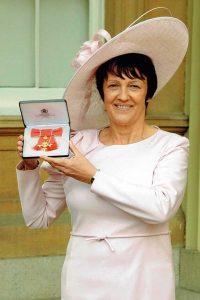
All the chief driving examiners have been good to work with. I mentioned above Keith Cameron. In addition, there have, in my time, been three other exceptional chiefs: Bill Smith, Robin Cummins and, of course, the recently retired Lesley Young. These three were recognised for their hard work with the award of an OBE.
I would also like to mention several professionals who have helped everything go smoothly; these are the rarely seen folks who organisations such as the MSA GB rely on: n Dan Butler Trowers & Hamlins – Solicitor n Elliot Simon, RSM – Accountant n Suzanne Cain, Kosmos – Web Administrator n Paul Coxson, Focus Software Systems database design and maintenance n Sue Beck – Payroll Bureau n Colin Regan, CMS – Advertising Sales Thanks also to Rob Beswick, the publisher of Newslink who I have worked with, on and off, for virtually all my time with the MSA GB.
Hopefully we have learnt a little from each other. I have taught Rob the intricacies of the driver testing and training world and that you really should wear patent shoes with a dinner jacket. He has tried to teach me the correct use of apostrophes and other grammatical niceties. However, the only useful thing he passed on, that I have managed to remember is that there’s no such thing as a bad Rioja.
In connection with Newslink I also offer my sincere thanks to the large band of members who have been MSA GB regional editors over the years. They have all worked hard and produced copy for the publication some more than others.
A special thank you to Rod Came; John Lomas; Colin Lilly and this year’s MSA GB Member of the Year Terry Pearce, all of whom have given MSA GB truly extraordinary service.
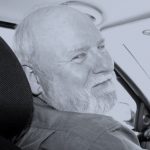
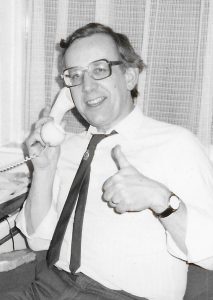
At the MSA GB itself there are nearly too many to mention but I will try. First, to the ‘man in the van’ or rather I should say, two men in the van. In 1989 the MSA GB launched an outreach programme with a series of vans and caravans going to test centres and providing a hot drink for instructors while their pupil was out on test. Once enticed aboard they would be wooed about the benefits of joining the association. At the time this was a very successful system, bringing in around 80 new members a month per van. Its success was down to the two men doing the ‘wooing’. Roy Appleby was one, happily touring British test centres with his caravan and bringing in new members.
The other was, of course, our great friend Jon Gross who worked for the association from the mid-80s to 1996 and was a great recruiter for the association. Sadly, he passed away in 2011 but he is fondly remembered.
Thanks, too, to all the MSA GB Board Members past and present. All have performed a valuable service and contributed a great deal but some merit special mention. The late Hywel Kirkhouse from South Wales, who taught me the definition of Advanced Driving – “Go like hell and don’t get caught” and Karl Satloka from the North East, whose support and encouragement during the libel case we were embroiled in was a great strength and comfort.
I would also like share my most abiding memory of our long-serving Deputy National Chairman, Geoff Little. Always a quiet and calm guy, I genuinely thought he was going to thump David Jamieson, the then roads safety minister who was looking to make all ADIs do the theory test again. To say Geoff got a bit annoyed with him is an understatement.
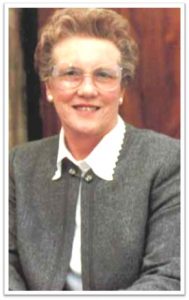
Carol and I have served three MSA GB chairman. In the chair when we started was Elizabeth Laurie Blair – known to all as Betty. She was a strong leader, a wise woman and a very caring person. She was chairman – she detested the title chairwoman – of the Motor Schools Association of Great Britain (MSA GB) from 1982 to 1989 and led the association through some extraordinary times. Her principal triumph was overseeing the transition of a virtually bankrupt but respected organisation into one that would grow again into the financially stable and relevant association it is today, all thanks to the seeds she planted.

Ron Feltham took the helm from 1989 to 1995. An ex-navy man, Ron was a great a leader. Although his catch phrase – “In the face of adversity, keep calm and carry on” – was on some occasions a little maddening, such as the time the projector caught fire, the projection screen collapsed and the caterers failed to turn up, but he was a fine man to work with. His ability as an RN signalman came to the fore as his touch-typing skills made his introduction to computers an easy transition and he was one of the original silver surfers.
In 1995 Peter Harvey took over as chairman. He had first become an ADI in the seventies and quickly became involved in the MSA GB alongside running his own driving school. During that time, he has devoted his efforts to helping many individual driving instructors, working with local road safety groups and promoting high standards for instructors across Scotland and throughout the British Isles, both as a member and officer of MSA GB.
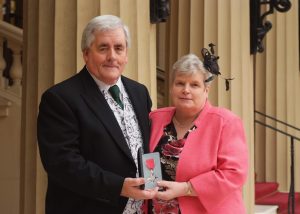
The breadth of Peter’s contribution to driver training, road safety and the MSA GB, always ably supported by his wife Jean and his family, is too great to cover in a couple of paragraphs. He has spoken at meetings all over Great Britain and Europe, addressing groups as diverse as the Budgerigar Society and Members of both the UK and Scottish Parliaments. Peter has also represented the MSA GB nationally at meetings with the DVSA and is one of the regular chairs of NASP. He has also been called to give evidence on behalf of driver trainers to the House of Commons Transport Select Committee.
The award of the MBE in the Queen’s Birthday Honours list 2011 was well deserved. His contribution to MSA GB is matched by the friendship and support he has provided for Carol and me.
I would like to conclude by sending best wishes to all MSA GB members from both Carol and me. It has been an honour and a privilege to work for you. We will not miss the pressure, but we will miss you.

Be First to Comment